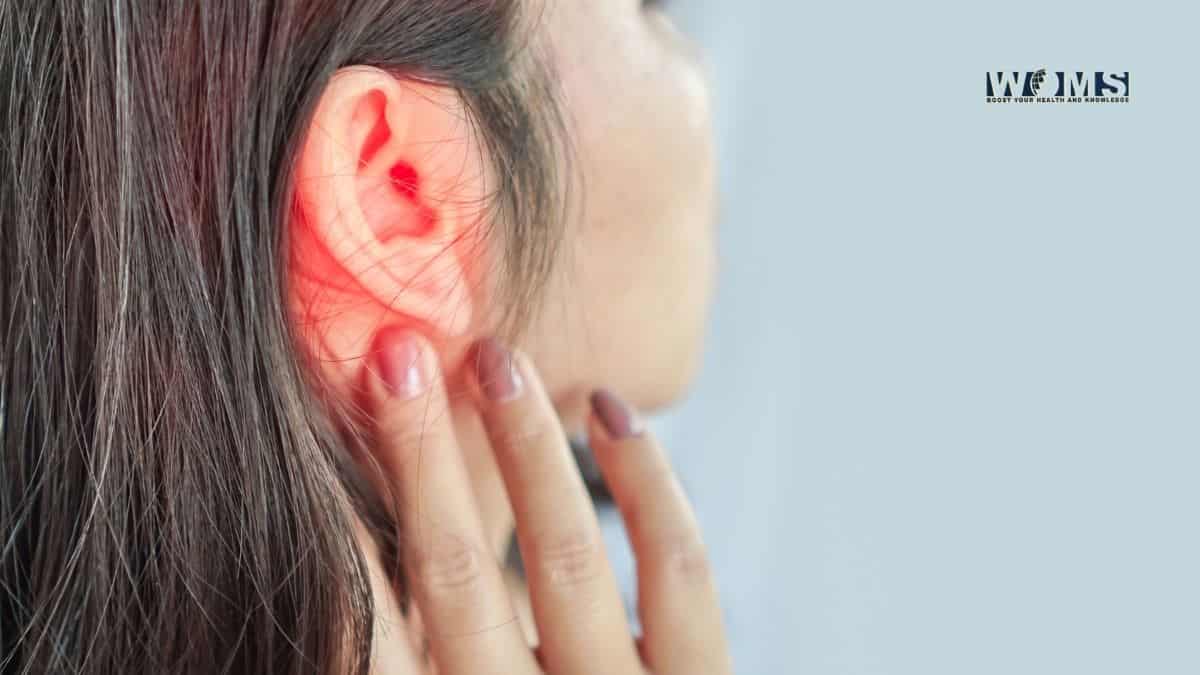Common Causes of Pain Behind Ears | Conditions That Influence Pain

There are a number of conditions that can cause pain behind the ears. Here are some of the most common ones:
Ear Infection: An ear infection is one of the most common causes of pain behind the ears. It can be caused by bacteria, viruses, or fungi and usually affects the middle ear. Symptoms include fever
Pain experienced behind your ear can really cause great discomfort and cause disruption to daily living. It may be tempting to blame your ears for the discomfort, however many times, it may be other parts that are causing the pain.
Your ears are closely linked to other parts of your head and neck because of their shared nerve supply. It is not uncommon for diseases like dental infection or jaw joint inflammation to be causing pain in your ear. Nerve-related headaches can also be associated with pain behind the ears.
When To Seek Medical Attention Immediately
Although not every ear pain necessitates an emergency visit to the doctor’s office, there are a few symptoms that should alert you to the possibility of an emergency situation.
Warning signs:
Excess ear drainage, a stiff neck, neck discomfort, neurological symptoms, and light sensitivity.
Different illnesses and conditions that influence pain
Otitis Media:
Otitis media is an ear infection caused by a gap between the inner ear and the eardrum that has become inflamed and infected.
Eustachian tube dysfunction is one of the possible causes. When the Eustachian tube, which connects the throat and middle ear, does not function properly, fluid does not drain properly from the middle ear efficiently.
Acute otitis media may occur when drainage does not happen as it should, allowing germs and viruses to develop.
Otitis Externa:
Otitis externa occurs when the ear canal becomes inflamed, resulting in discomfort. You are more likely to experience ear discharge, itching ears, hearing loss, and discomfort in your outer ear if you have this condition. Avoid over-cleaning your ears and bathe them properly after swimming to prevent any problems.
Ear Wax:
Earwax, also known as cerumen, is a natural substance that has several purposes in the ear. One of these roles is to protect the outer ear canal’s lining. If impacted earwax isn’t removed properly, it may accumulate deep within the ear canal. Sticking objects such as earbuds or fingers inside the ear canal can lead to impacted ears, thereby causing pain.
Impacted ears can even cause tinnitus, and if it is serious – it can contribute to deafness.
TMJ Disorder (Temporomandibular Joint Disorder):
The temporomandibular joint is found in the front of your ear, where your jaw connects to your skull. TMJ disorders are frequently linked to problems with this joint and its surrounding muscles. The discomfort in this region is typically dull, continuous, and throbbing. Chewing on a daily basis makes matters worse.
Occipital Neuralgia:
Occipital neuralgia is a severe type of pain that starts in the back of the head and travels down the top of the neck, producing shooting, stabbing, or electric shock-like agony. As a result of regular activities, only one side of the head is affected.
Mastoiditis:
Mastoiditis is an uncommon illness of the mastoid bone, which sits behind and below your ear. Mastoiditis most often develops as a result of untreated or unsuccessfully treated acute otitis media. Pain in the area behind the ear isn’t the only indication of this sickness. Fever and a headache are also typical symptoms.
How to treat pain behind the ear?
The treatment for a sinusitis attack is based on the cause of your pain. If an ear infection, such as otitis media or external, is to blame for the discomfort behind your ear, your doctor may prescribe an antibiotic.
Mastoiditis is a serious and painful infection that necessitates a more aggressive therapy strategy, which frequently includes intravenous antibiotics and surgical drainage of the infected fluid.
If your earache is caused by impacted ears, over-the-counter earwax-softening drops may be quite beneficial. Alternatively, micro suctioning from a specialist can aid you.
TMJ problems are sometimes difficult to treat. Many people, on the other hand, have reported improvement by combining muscular relaxants, nonsteroidal anti-inflammatory medications (NSAIDs), physical therapy, and stress management.
There are several reasons why discomfort may be felt behind the ear. As a result, if you are suffering, it is strongly advised that you visit your doctor.
Addressing Hearing Loss
If you have a hearing problem, it is essential to visit an audiologist or ENT specialist. There are a variety of treatments available for hearing loss, and the sooner you get help, the better.
If you understand that your hearing loss is not very severe, getting a custom-made hearing aid for you is an effective non-surgical solution to address your hearing loss. Consulting a hearing aids Singapore specialist can be helpful.




